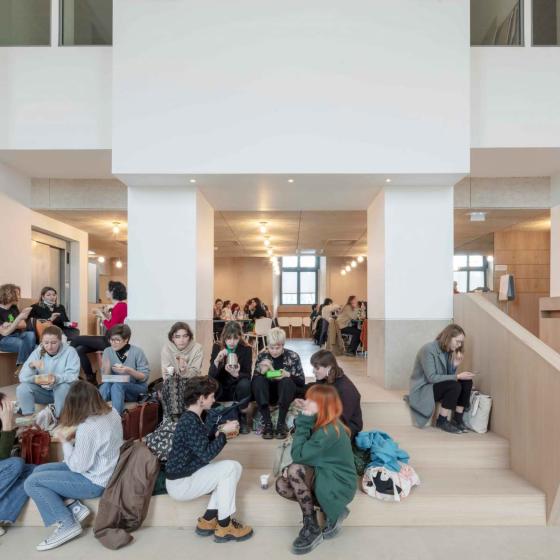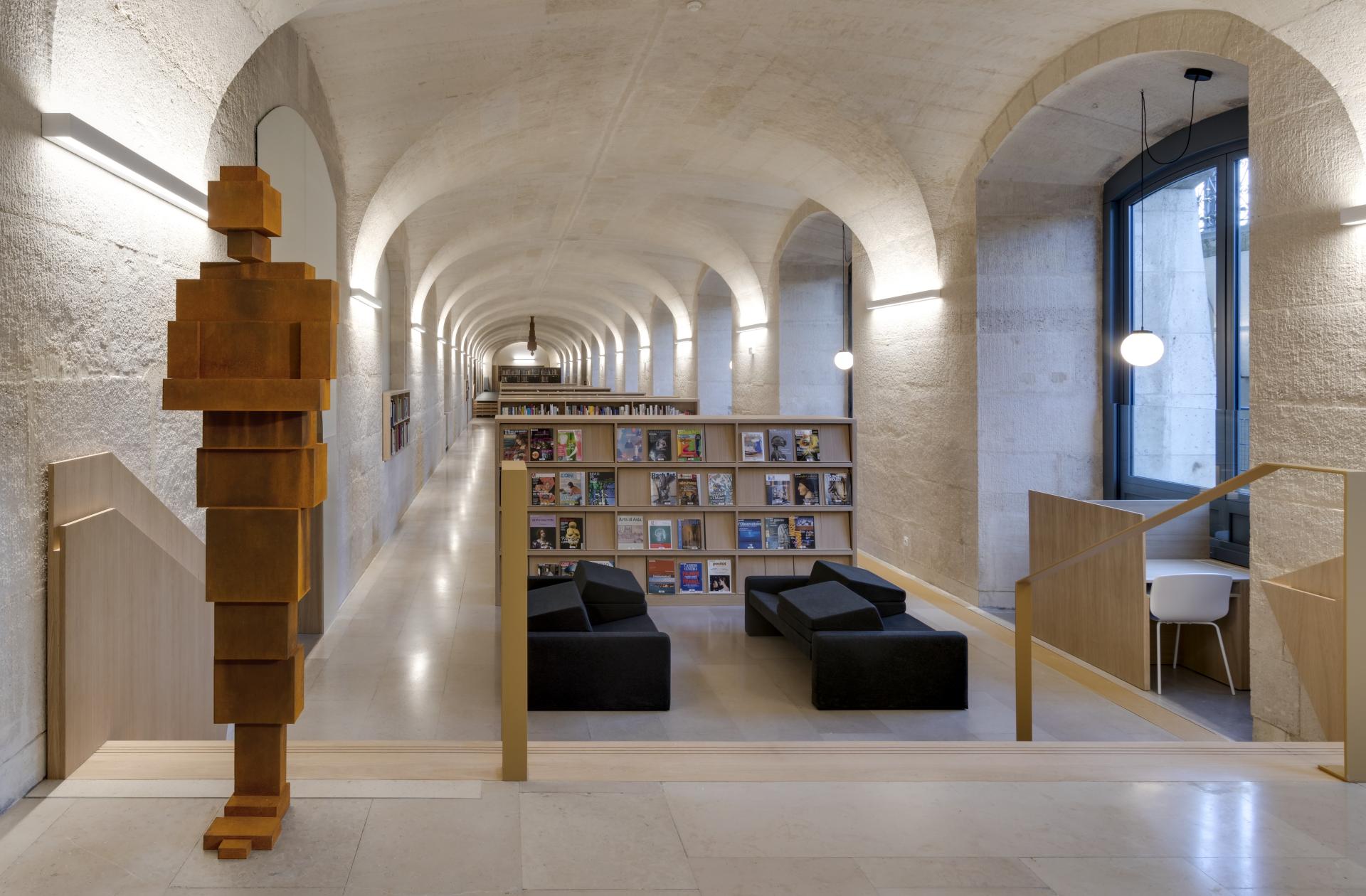
Master 1
Back to school day
Tuesday 9 September 2025 8AM À Paris, en amphiHow to register
Admission for students from the École du Louvre:
1ere year graduate teaching is open to holders of the "Diplôme de premier cycle de l'École du Louvre", obtained in a maximum of four years, with an average of 14/20 in the examinations for the third-year undergraduate specialty course.
Admission for external students:
Applications for admission by equivalence may be made by students from French or foreign universities or higher education establishments.
The online application form is available from mid-April.
After validation of the form, the entire file must be returned by May 31 inclusive, strict deadline.
You can access the dematerialized application form by clicking here .
Selection criteria:
- Academic level
- Suitability of the proposed course of study for the applicant's letter of motivation, which must be detailed and well-argued (a simple interest in the career or careers for which the course may prepare is not sufficient)
- Registration fee (2023-2024): 633 euros.
- Special fee for formation continue trainees.
This course is not open to auditors.
Nature of teaching
The program offers an analytical and critical approach to the scientific, administrative and technical sectors linked to the conservation, study, presentation and dissemination of heritage.
It includes art history teaching and initial research experience.
It is organized in two semesters.
Collaborations with foreign universities are offered :
First half-year
History of collections, museums and heritage in Europe (in English)
Administration and management of heritage and museums
Principles of conservation-restoration
Introduction to mediation and audiences
History of art, diachronic subject
Museology, history and foundations
Historiography (choice of art history, archaeology or ethnology)
Research methodology, museum acquisitions, provenance research
Throughout the academic year, a dissertation is prepared under the guidance of a teacher, according to various disciplinary fields. Each student participates in a research group within which he or she receives methodological support.
25 research groups are offered:
- Medieval
- Renaissance and Modern Art
- Art from the period 1848-1914
- History of Photography
- Women artists, critical biographies through the collections of the Musée national d'art moderne - Centre Pompidou
- "Venus d'ailleurs": international migrations, cultural transfers, travels, exiles and exchanges in art in France from 1950 to the present
- Administration and management of heritage and museums
- History of Museology: actors, issues and objects
- History of museums and ideas in modern and contemporary times
- Archaeology and museography: Egyptian and Oriental archaeology
- Archeology and museography: Greek, Etruscan and Roman archaeology
- History of the Centre Georges Pompidou
- History and heritage of cinema
- Public policy and mediation systems
- European social and cultural anthropology
- Collections of the arts and civilizations of Africa, Asia, Oceania and the Americas
- Asian art
- History of fashion, clothing and textiles
- Preventive conservation
- Architectural and landscape heritage
- Versailles
- History of the Louvre
- Art in wartime
- Historic monuments
- German
- English
- Spanish
- French (foreign language)
- Italian
Second semester
12 seminars offered:
- Archaeology: from excavation to exhibition
- The new Musée de l'Homme - Reinventing the purpose
- Museography at the service of mediation in CNCS spaces
- Showing the city and its inhabitants: the exhibition, between objects and ideas
- Versailles: museographic and cultural choices for a major heritage site
- A museographic challenge: scenography
- Centre de conservation du Louvre (Liévin) and musée du Louvre-Lens
- The Musée des Monuments français: what works are we talking about?
- Renovating, expanding, building a museum: when? how? with whom?
- The MAC/VAL: supporting, producing and conserving art in the making
- The Musée de l'Armée: the Army Museum's worksites
- The Château de Fontainebleau: what museography and mediation for a major heritage site?
Students choose two seminars in the field of mediation and/or conservation-restoration (objects).
A complementary optional seminar from the École du Louvre or partner institutions (see program).
Throughout the academic year, a dissertation is prepared under the guidance of a teacher, according to various disciplinary fields. Each student participates in a research group within which he or she receives methodological support.
25 research groups are offered:
- Medieval
- Renaissance and Modern Art
- Art from the period 1848-1914
- History of Photography
- Women artists, critical biographies through the collections of the Musée national d'art moderne - Centre Pompidou
- "Venus d'ailleurs": international migrations, cultural transfers, travels, exiles and exchanges in art in France from 1950 to the present
- Administration and management of heritage and museums
- History of Museology: actors, issues and objects
- History of museums and ideas in modern and contemporary times
- Archaeology and museography: Egyptian and Oriental archaeology
- Archeology and museography: Greek, Etruscan and Roman archaeology
- History of the Centre Georges Pompidou
- History and heritage of cinema
- Public policy and mediation systems
- European social and cultural anthropology
- Collections of the arts and civilizations of Africa, Asia, Oceania and the Americas
- Asian art
- History of fashion, clothing and textiles
- Preventive conservation
- Architectural and landscape heritage
- Versailles
- History of the Louvre
- Art in wartime
- Historic monuments
- German
- English
- Spanish
- French (foreign language)
- Italian
Reviews
First semester: terminal and continuous assessment.
Second semester: continuous assessment, dissertation and defense for the second semester.
Assessment results in the awarding of credits (ECTS), 30 credits per semester, 60 credits being required to validate the teaching year.
The "Diplôme de muséologie de l'École du Louvre" sanctions this first year.
Contact
01.55.35.18.00 (general information)

